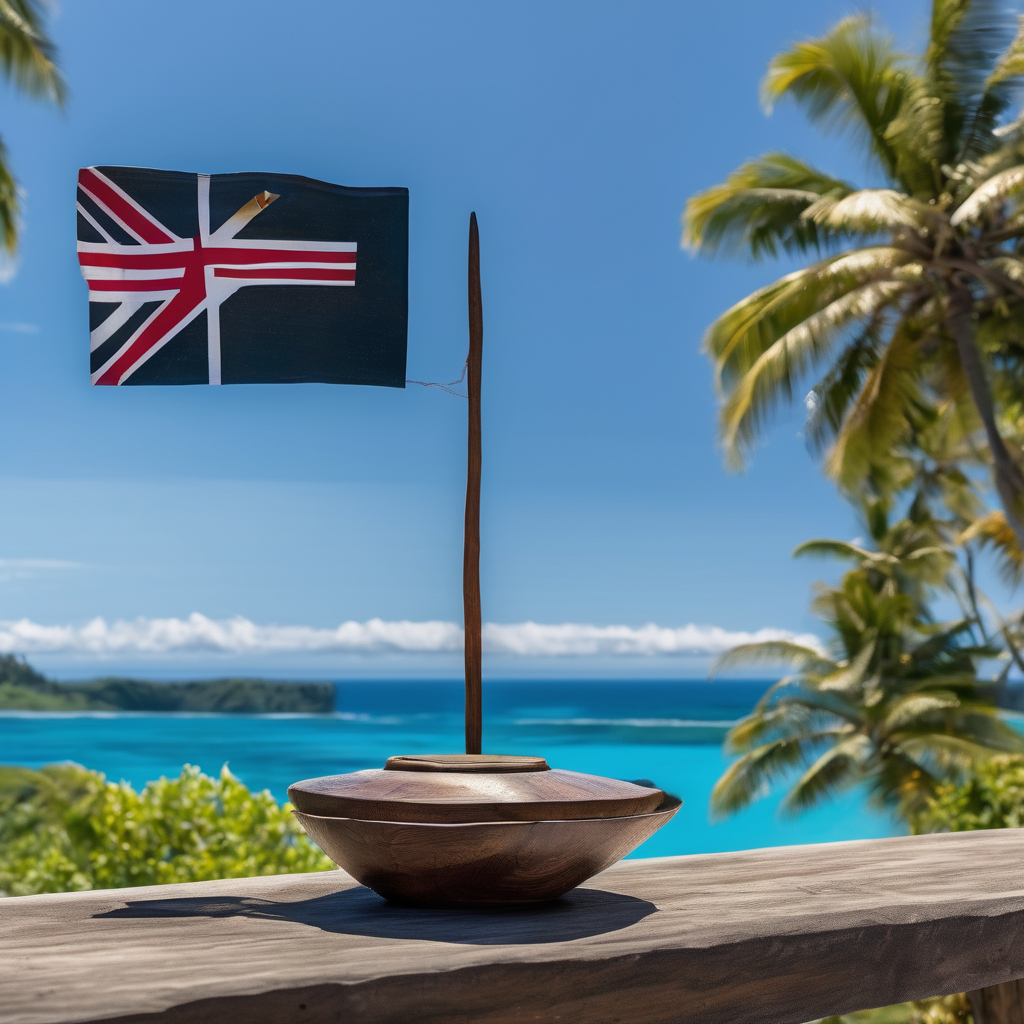Tessa McKenzie, one of the co-designers of the Fiji flag, has recently expressed her concerns regarding the way the national flag is being used. Her comments arise in response to public backlash over a social media post from the Fiji Government, which displayed the flag draped over a table during a Fiji Day dinner, with food trays placed on it. McKenzie emphasized the importance of treating the flag with dignity and respect, as it embodies the nation’s history and unity. While surprised and slightly offended by its portrayal, she recognized that the passionate reactions stem from a profound sense of national pride.
“A flag is a national emblem, and it should not be used for anything other than celebrating or, in the context of a funeral. It’s a national emblem — it shouldn’t be misused in trivial ways, like on cars or tablecloths,” she stated. Although some interpretations of the flag, such as those seen on clothing or sarongs, are aesthetically appealing, she remarked that others are less tasteful.
McKenzie also reflected on Fiji’s political history, suggesting that the flag stands for resilience and hope. “We’ve made mistakes, but we must have hope. As a Christian, I know God will not give up on us,” she affirmed.
Rewa chief Ro Naulu Mataitini supported McKenzie’s views, asserting that the treatment of the flag is a reflection of societal values. “A flag is much more than a piece of colored cloth. It is a powerful symbol of a country’s identity, history, and independence,” he stated, underscoring the necessity of its dignified treatment. Notably, while many countries, including Fiji, have laws protecting the status of their flags, prominent lawyer Richard Naidu pointed out the lack of formal regulations governing the usage of the Fijian flag, mentioning the incomplete status of the 2015 National Flag Protection Act.
As discussions continue, the necessity for a legal framework to protect the flag has become increasingly apparent, highlighting the responsibility of both the people and the government. This ongoing dialogue about national identity and the representations of emblems reflects broader conversations in Fiji surrounding governance, societal values, and the promotion of unity among its citizens. Such discourse may inspire a renewed commitment to cultural and historical values, fostering respect and pride in national symbols.
